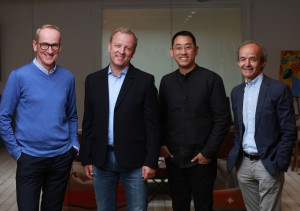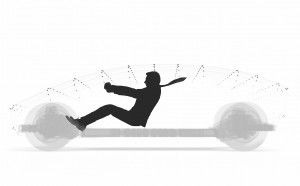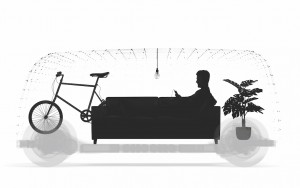In a market crowded with wannabe battery-car manufacturers, Los Angeles-based Canoo hopes to create a niche for itself with what’s its describing as a vehicle using “minimalist design that maximizes interior space.”
“Boutique” start-up Canoo is trying to to pitch itself as the alternative to conventional automotive manufacturers, as well as some of its new EV competitors, among other things by “Liberating you from the tyranny of auto ownership.” That translates into offering its planned products only through a subscription service.
Originally known as Evelozcity, Canoo has yet to show any of the vehicles it’s planning to bring to market, something that might raise questions about the start-up’s viability. But to gain at least a little credibility, the company has announced it is hiring three battery-car veterans from BMW and rival EV wannabe Faraday Future.
That includes Clemens Schmitz-Justen, the former president of BMW Manufacturing, who will be Canoo’s head of manufacturing. Other new hires come from places like Uber and STMicroelectronics, as well as SAIC, one of China’s leading homegrown automakers.
(Deal with mobile gaming company may save Faraday Future. Click Here for the story.)
Describing itself as a “boutique California brand,” Canoo appears not to be aiming at the big volume numbers that competitors like Tesla or Faraday have been gunning for. And, if one takes the company at its word, its approach seems to be resonating, at least in the financial community, Canoo claiming to have already raised about $1 billion in capital.
What exactly that money will create is uncertain, but the start-up talks more like a digital venture than a classic car company. Take the decision to change its original name.
“We picked Canoo because it sounds distinctive, looks cool and creates a feeling of both relaxation and movement,” said Stefan Krause, who is In Charge of Canoo. “For thousands of years, a canoe has been a simple, sustainable transportation device used all over the world.”
As for what the company will bring to market, it tells us it is shooting for “a design that will look like nothing on the road today by challenging the norms of space and function, as well as 0ffering a lean user interface.”
(Click Here for details about Oslo instituting wireless EV charging.)
Of course, Canoo wouldn’t be the only one who sees the opportunity to change the design and, in particular, the interior layout, of the automobile by going all-electric. Virtually all of the new long-range electric vehicles are adopting skateboard-like platforms that position the batteries and motors below the load floor, freeing up space that would normally be devoted to the engine compartment. Jaguar’s I-Pace, for one, has moved the instrument panel forward, resulting in a much larger cabin than its exterior footprint would suggest.
As for selling by subscription, that’s another shift beginning to take root throughout the auto industry, with manufacturers ranging from Porsche to Volvo inviting customers to shift from conventional purchasing and leasing options to subscribe much like they do to digital services. The big difference appears to be Canoo’s goal of solely offering subscriptions. Whether it will follow Tesla, meanwhile, and shift away from conventional stores to a more online-based model hasn’t been said.
The other key difference Canoo describes would see it focus on “reducing production and infrastructure costs while increasing revenue.” That’s another goal you’ll hear industry executives target, whether they’re working at old-line companies such as General Motors and Toyota, or upstarts like Tesla.
How Canoo plans to do that is yet unsaid. Building an automobile is, of course, a complex task that traditional requires massive factory investments and lots of labor. How a “boutique” company will find ways to lower costs and raise margins could prove intriguing.
(GM investing $300M in Detroit-area plant for new EVs. Click Here for the story.)
The start-up should give us some hints in the not-too-distant future, however. Launched just 15 months ago, Canoo says it plans to be offering its first product line by 2021.




A waste of ink to give any press to these start-up wannabees.